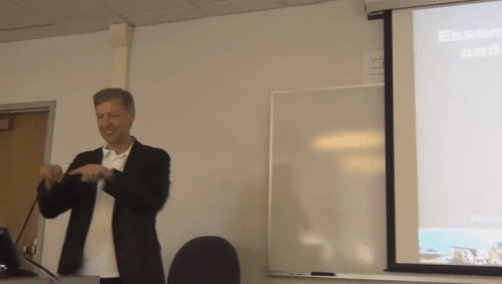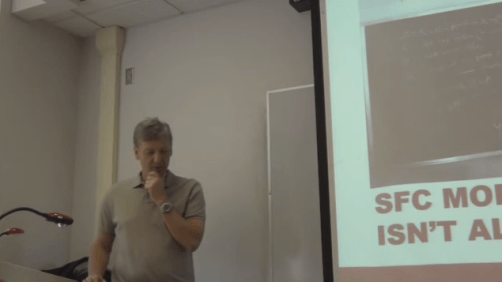Now Britain finds itself in an alarming new landscape, where our very ways of feeding ourselves, like so much else, look uncertain.
– Bee Wilson, The New Yorker
Paul Krugman has a post The Macroeconomics of Brexit: Motivated Reasoning? on his blog The Conscience Of A Liberal about how “experts” exaggerated claims of the impact of a result to leave in the recent UK EU membership referendum (“Brexit”). Quite agree with Paul Krugman. When Michael Gove told Sky News that people in the UK have had enough of experts, he was laughed at. Video here.
Needless to say this is not an endorsement of Michael Gove’s other political position. Strange times, when you defend someone with different political ideology. The above is just meant to highlight a point that experts exaggerated and that people knew.
John Maynard Keynes also said this in the GT:
But although the doctrine itself has remained unquestioned by orthodox economists up to a late date, its signal failure for purposes of scientific prediction has greatly impaired, in the course of time, the prestige of its practitioners. For professional economists, after Malthus, were apparently unmoved by the lack of correspondence between the results of their theory and the facts of observation;— a discrepancy which the ordinary man has not failed to observe, with the result of his growing unwillingness to accord to economists that measure of respect which he gives to other groups of scientists whose theoretical results are confirmed by observation when they are applied to the facts.
Paul Krugman’s main point is that economists’ arguments were motivated reasoning, involved circular reasoning and assumed what they wanted their model to output.
But maybe Paul Krugman himself is doing so? Krugman claims:
I believe that Brexit is a tragic development, which will do substantial long-run economic harm. But what we’re hearing overwhelmingly from economists is the claim that it will also have severe short-run adverse impacts. And that claim seems dubious.
Okay, financial markets have improved after some initial panic caused by the fear of fear. and FTSE 100 is at year-to-day highs. But Krugman still wishes to claim that Brexit is bad long term:
OK, let’s start at the beginning. Brexit will almost certainly have an adverse effect on British trade; even if the UK ends up with a Norway-type agreement with the EU, the loss of guaranteed access to the EU market will affect firms’ decisions about investments, and inhibit trade flows.
This reduction in trade relative to what would otherwise happen will, in turn, make the British economy less productive and poorer than it would otherwise have been. It takes fairly heroic assumptions to make this into a specific number, but 2-3 percent lower income in perpetuity seems plausible.
So far, so good, or rather so bad: this is standard economics, basically Ricardo with a dash of new trade theory.
Firstly it claims that is takes heroic assumptions. Second, but more importantly, Ricardo’s theory? Seriously? Ricardo’s theory and new trade theory claim there is convergence of successful and unsuccessful economies under free trade but emperically what is observed is that because of the process of circular and cumulative causation, there is polarization, not convergence.
It should be possible for the United Kingdom to negotiate protective arrangements (especially in manufactures) in such a way that the EU does not impose punitive tariffs and its exports do not suffer. Trade won’t suffer because although the propensity to import reduces, the government can expand domestic demand since such policies might ease the balance of payments constraint and the volume of UK imports won’t fall.
More generally, the solution of the problems of the world can come about if there is a concerted action, in which fiscal policy is coordinated and there are set of rules for balance-of-payments targets. In this system of regulated trade, world trade can rise because of higher world income as compared to a world with free trade.
Brexit should make economists realize that their models do not conform to empirical data. Ricardo and new trade theory can be cast aside.

